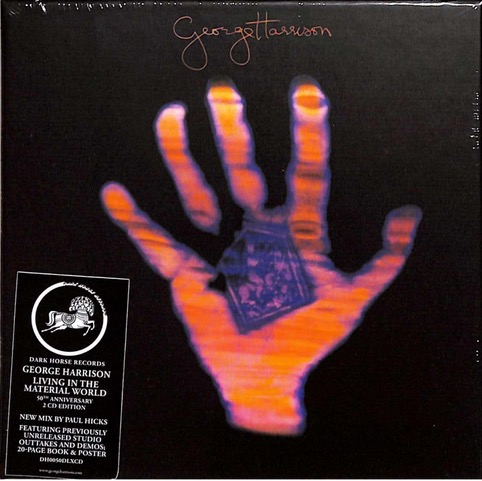George Harrison was dubbed the “quiet Beatle,” but he began his post–Fab Four career with a bang, releasing 1970’s chart-topping three-LP All Things Must Pass, which some fans and critics consider the best solo album ever released by any member of the quartet. He followed that with another massively successful triple-disc collection, 1971’s Concert for Bangla Desh, which features his performances at that charity event and ones by Bob Dylan, Ringo Starr, Billy Preston, and others. Those albums raised high expectations for Harrison’s second post-Beatles studio release, 1973’s Living in the Material World, which he wrote and produced. (He shares production credits on one track with Phil Spector, who co-produced All Things Must Pass.)
The LP, which has just been reissued in a variety of 50th anniversary editions, gave Harrison yet another win. Like All Things Must Pass, it earned laudatory reviews and rose quickly to the top of the charts. It also spawned a No. 1 single, “Give Me Love (Give Me Peace on Earth),” a song that sounds as if it could have fit on All Things Must Pass.
So do many of the other tracks, which isn’t surprising. Though Living in the Material World features a less elaborate production than All Things Must Pass and employs far fewer musicians, it shares the earlier album’s focus on Harrison’s Hindu spiritual pursuits, and it relies on players who appeared on the prior LP, among them Spooky Tooth’s Gary Wright on keyboards, Starr and the ubiquitous Jim Gordon on drums, and Klaus Voormann on bass. Also on hand are famed keyboardist Nicky Hopkins and sax and flute player Jim Horn as well as John Barham (strings), and Indian classical musician Zakir Hussain (tabla).
It’s a mostly excellent record. “Sue Me, Sue You Blues” seems musically and lyrically out of place here, and overall, the album is arguably not quite as much of a triumph as All Things Must Pass. But the lion’s share of the record is characterized by solid compositions and first-rate musicianship by all concerned. Harrison’s slide and acoustic rhythm guitar is outstanding, and his vocal work includes some of his best.
The most affordable of the new 50th anniversary editions, which comes with a 20-page booklet and a poster, features two CDs. The first offers a nicely remixed copy of the original record while the second contains previously unreleased alternate and demo versions of the album’s 11 songs, among them acoustic readings of “Give Me Love (Give Me Peace on Earth)” and two other tracks. Here, too, is the lighthearted “Miss O’Dell,” the B side of the “Give Me Love” single, which has also served as a bonus track on previous reissues of the album.
Other 50th anniversary configurations of the record include a one-CD edition, a two-LP vinyl version, and a “super deluxe” limited edition (unaudited by this reviewer). That last package delivers two LPs and two CDs, the second of which adds a song called “Sunshine Life for Me (Sail Away Raymond)” that features members of the Band. Also in the box are a seven-inch single with two versions of that tune, a 60-page hardcover book, and a Blu-ray with Dolby Atmos mixes of the original album and all the other tracks. This “super deluxe” box will set you back about $175 – not chicken feed but, hey, we’re living in the material world.
Also Noteworthy
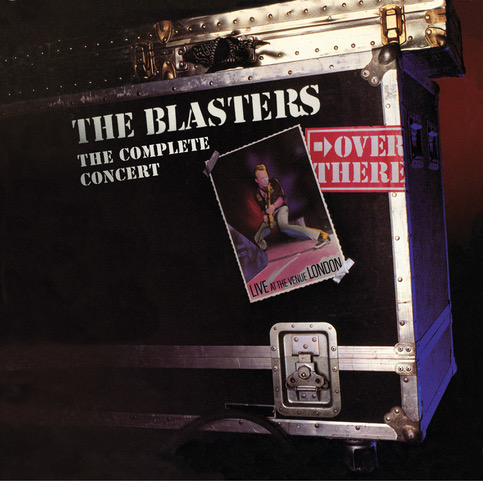
The Blasters, Over There: Live at the Venue, London – The Complete Concert. California’s Blasters blast off on track one of this CD and remain in the stratosphere throughout the wild, high-energy set, which they recorded at a London gig in 1982, just three years after the band’s formation. The concert features co-founders Phil Alvin (vocals, guitar) and his brother Dave (lead guitar) as well as Bill Bateman on drums, John Bazz on bass, Steve Berlin on baritone sax, and Lee Allen on tenor sax. Six performances from the show surfaced on an EP in ’82 and four others appeared in an anthology in 1997, but this is the first time that the entire 23-song concert has been available.
The set – which reflects all the group’s influences, including rock, rockabilly, R&B, and country – incorporates nine numbers by Dave Alvin as well as a version of “Walkin’ with Mr. Lee,” an instrumental by Allen that came close to denting the Top 40 in 1958. There are also covers of such vintage gems as Bo Diddley’s “I Love You So,” Little Richard’s “Keep a Knockin’,” Otis Redding’s “These Arms of Mine,” Jerry Lee Lewis’s “High School Confidential,” Roy Orbison’s “Go, Go, Go,” and Slim Harpo’s “Got Love If You Want It.” Close your windows to avoid noise complaints from your neighbors, then crank up the volume and enjoy.
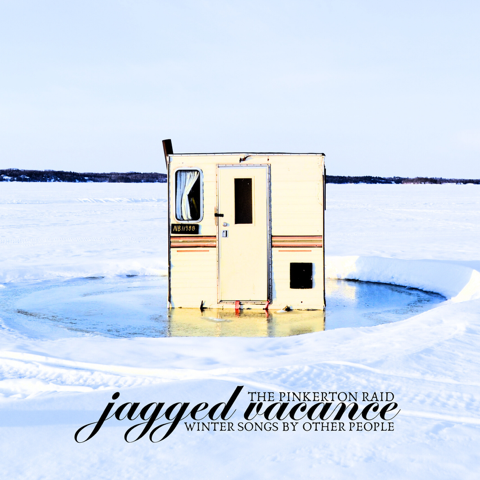
The Pinkerton Raid, Jagged Vacance: Winter Songs by Other People. The Durham, North Carolina–based Pinkerton Raid, an indie-folk band, features vocalist and multi-instrumentalist Jesse James DeConto and an assortment of backing musicians and singers.
Their albums generally showcase DeConto’s compositions but on this well-crafted release, the group offers often radically transformed versions of well-known rock and folk numbers by other artists. Most are Christmas songs but a few simply nod to the winter season. Among the selections are John Lennon and Yoko Ono’s “Happy Xmas (War Is Over),” Simon & Garfunkel’s “A Hazy Shade of Winter,” the Beatles’ “Norwegian Wood,” Joni Mitchell’s “River,” and “Blue Christmas,” the Billy Hayes/Jay Johnson number that Elvis Presley popularized.
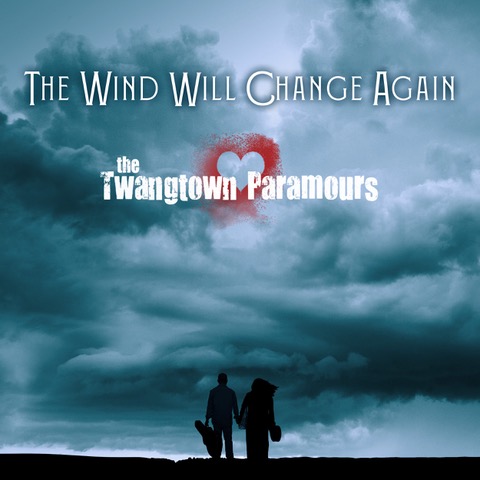
The Twangtown Paramours, The Wind Will Change Again. The Twangtown Paramours, a husband-and-wife duo consisting of Mike T. Lewis and MaryBeth Zamer, have focused in recent years on electric instruments and blues-based music. On this fourth album, though, the Nashville-based couple turn to acoustic folk for the first time in 12 years. Lewis wrote or co-wrote most of the program, in four cases with Zamer.
Not everything here is a keeper but there are some wonderful moments, especially the atmospheric, accordion-spiced “A Room in Bordeaux” and a cover of Jimmie Dale Gilmore’s classic “Tonight I Think I’m Gonna Go Downtown.” The latter features a gorgeous vocal by Zamer and guitar by Lewis, who sometimes plays upright bass for Gilmore.
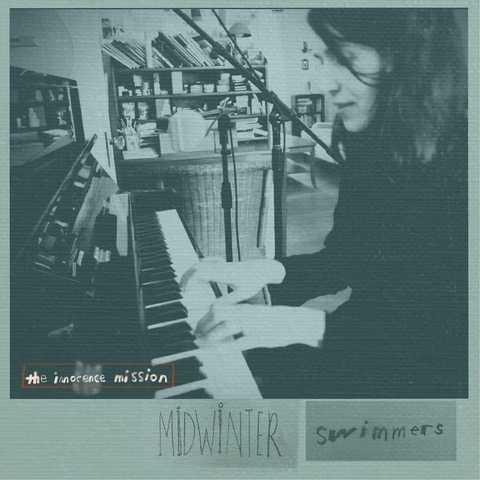
The Innocence Mission, Midwinter Swimmers. This is the 13th studio album from the Innocence Mission, an indie-folk outfit that formed way back in 1986 in Lancaster, Pennsylvania. The CD features vocalist and multi-instrumentalist Karen Peris; her husband Don, on electric and acoustic guitars and drums; and on four numbers, Mike Bitts on upright bass or electric bass guitar. Karen wrote all 11 songs, one in collaboration with her spouse.
Peris’s vocals continue to sound reminiscent of the Sundays’ Harriet Wheeler and the band’s music still bears comparison to early Belle & Sebastian. Peris’s impressionistic lyrics are frequently enigmatic, but her dreamy music is consistently soothing, sweet, and accessible.
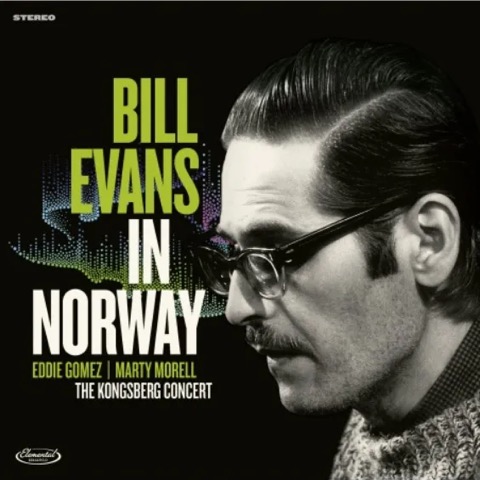
Bill Evans, Bill Evans in Norway: The Kongsberg Concert. According to the liner notes for this release, which include an interview with Bill Evans, the late jazz pianist liked to include in his setlists “popular songs that audiences knew” as well as “originals that would have an emotional impact.” Moreover, he wanted his shows to have “a narrative arc – opening pensive, rising and falling with songs of varying moods and tempos, and ending stormy.” He accomplished all those goals with this 1970 show, which finds him accompanied by bassist Eddie Gomez and drummer Marty Morell.
The 13-track program opens with Harold Arlen and Johnny Mercer’s “Come Rain or Come Shine” and ends with Miles Davis’s “Nardis.” In between are two excellent Evans originals and innovative readings of such standards as “Michel Legrand and Alan and Marilyn Bergman’s “What Are You Doing the Rest of Your Life?” and Leslie Bricusse and Anthony Newley’s “Who Can I Turn To?”
Jeff Burger’s website, byjeffburger.com, contains five decades’ worth of music reviews, interviews, and commentary. His books include Dylan on Dylan: Interviews and Encounters, Lennon on Lennon: Conversations with John Lennon, Leonard Cohen on Leonard Cohen: Interviews and Encounters, and Springsteen on Springsteen: Interviews, Speeches, and Encounters.


